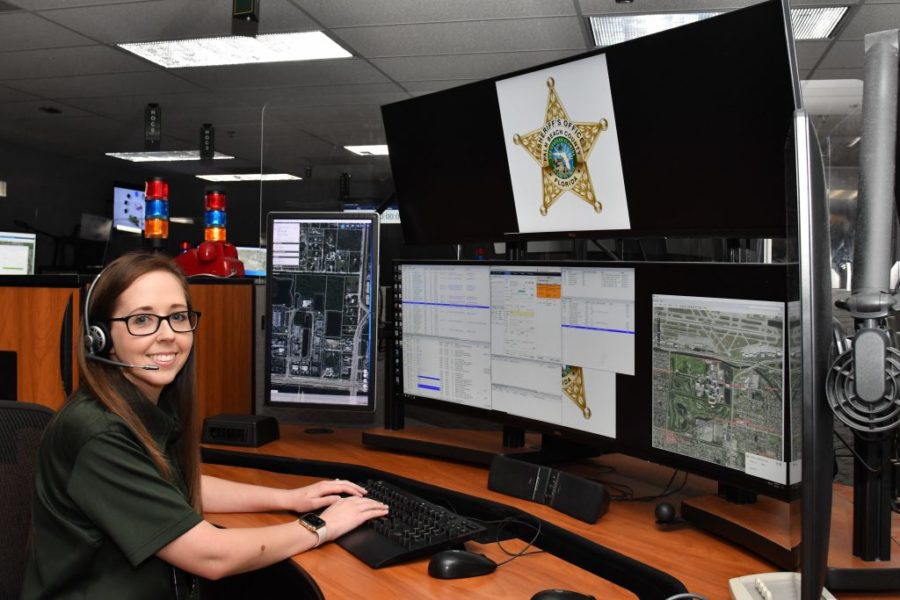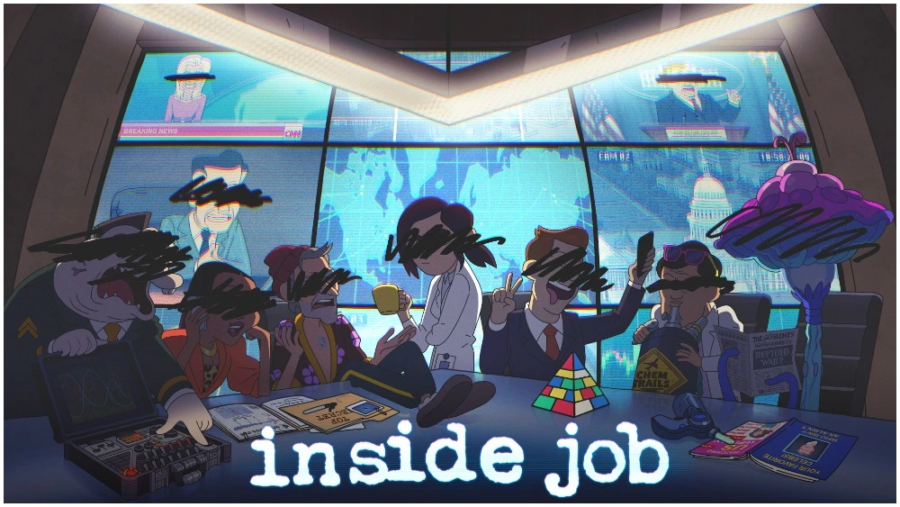Calls That Save Lives
911 operators discuss the impact their job has had on their lives.
Palm Beach County Sheriff’s Office
A 911 operator for the Palm Beach County Sheriff’s Office trained in helping solve emergencies over the phone.
March 9, 2022
“911, what’s your emergency?” We have all heard this question at some point in our lives; over the phone with a 911 operator, in various different television shows, videos on social media. From a very young age, we are taught to immediately call 911 in the event of an emergency, whether it be to get help for a person in medical distress or to report a crime. However, most people do not know much about the first responders on the other line, including how their everyday lives are impacted by their job.
The job of a 911 operator is no easy feat. They are the first people to speak to those involved in the call and assist with an emergency. The operators then notify and dispatch emergency personnel to the location where the incident has occurred. They must carefully get as much information about the emergency as possible while on the phone with a caller. Additionally, they may need to issue medical instructions to the caller until further assistance arrives. Some of the other responsibilities operators have are logging calls, compiling reports of events that occur, and tracking emergency vehicles.
The calls handled by 911 are extremely unpredictable: there’s no way of previously knowing how dire or emotional the situation might be, and 911 operators must act accordingly regardless of what is thrown their way.
A 911 operator who has been working in the field for eight years, Brianne Muniz, provides some important insight into the profession and what it consists of.
“Not everyone can do this job. We are not just answering calls, we are handling the phones, radio, and stress of it all. We do not know what the call is going to be on the other end of the line.” Muniz says.
To be a 911 operator requires a great amount of diligence and steadfastness. The calls that come in every day can handle any kind of emergency: ranging from something like a minor car crash to a fatal drowning and so much more. Listening to such things every day is bound to have an impact on the first responders on the receiving end of these calls. Several 911 dispatchers from the Palm Beach County Emergency Operations Center were surveyed and asked how their job has had an impact on them.
Jill Anderson, who has been working as a 911 dispatcher for 34 years says, “Several things have affected my home life: from bad calls to always expecting the worst, but being relieved when things are not as bad as I first thought. An automatic reaction is that someone will be hurt, which makes you harder on your kids because you know the pain that could happen and they seem so carefree about life.”
Many of the calls that are dealt with by 911 dispatchers involve life or death situations. Yolanda Rivera, a dispatcher of four years, recounts the effect this has had on her.
“Most calls allow us to have a different perspective of the world around us. For example, I have personally had several calls with stabbings or shootings in public places. This in turn forces me to be more vigilant and check exits in public, or even causes me to sit facing the door,” Rivera describes.
These are just a few of many examples of the way 911 operators’ jobs have an impact on them. The public often underestimates the focus and stability that is necessary to be a dispatcher. This raises the question: how do 911 dispatchers handle the emotional weight and balance their work life with their life at home?
“What I’ve learned early in my career is to have a support system. Luckily mine is my husband who is a retired police officer. Having someone who knows and understands the level of stress is huge,” Dispatcher Susan Holloway states.
Another dispatcher, Angela Soto says, “I just try to spend my days off spending time with my family, or doing something I love. I try to leave work at work and stay busy when I’m not here.”
Some other strategies used by dispatchers who were surveyed are listening to music, exercising, meditation, and spending time with friends and family. Separating work from home is another strategy that many of the 911 operators use. Bernadette Munguía details how this strategy helps her.
“I believe my faith and honest outlook on life allows me to properly process difficult calls. I have an amazing support system in my daily life that allows me to also decompress from the stress of the job. ”
Saving lives over the phone every day is bound to leave a lasting impact on a person, yet these strong individuals find ways to overcome the challenges presented before them and prosper in their everyday lives.








